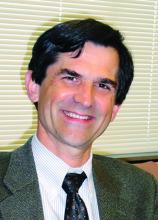New Trump administration regulations will make it more difficult for immigrants to remain in the United States if they receive health care assistance – in sharp contrasts to a recent movement in medicine to address the social determinants of health.
Under longstanding immigration policy, officials can refuse to admit immigrants into the United States – or to adjust their legal status – if they are deemed likely to become a public charge.
Previously, immigration officers considered cash aid, such as Temporary Assistance for Needy Families or long-term institutionalized care, as potential public charge reasons for denial.
The new regulation, published Aug. 14 in the Federal Register, allows officials to consider previously excluded programs in their determination, including nonemergency Medicaid for nonpregnant adults, the Supplemental Nutrition Assistance Program (SNAP), and several housing programs. The final regulation continues to allow immigrants to access emergency medical care and disaster relief without public charge repercussions.
The rule is not only unethical, but it will cause medical care to be unavailable to patients who are hardworking, have families to support, and often are employed in trades that are low-paying, said Alan R. Nelson, MD, an internist-endocrinologist and former special advisor to the CEO of the American College of Physicians.
“The rule not only flies in the face of efforts to confront social determinants of health and thereby reduce disparities in care and outcomes, but will strain emergency and safety net services at the local/county level and burden hospitals and clinics with more uncompensated care,” Dr. Nelson said in an interview. “Everybody loses.”
In a joint statement, the American Academy of Family Physicians, the American Academy of Pediatrics, the American College of Obstetricians and Gynecologists, the American Osteopathic Association, the ACP, and the American Psychiatric Association expressed concern that the new regulation will discourage immigrants from seeking needed health care since such assistance may be used to deny green cards and visas, or even lead to deportations.
“Rather than face that threat, impacted patients currently served by our members almost certainly will avoid needed care from their trusted physicians, jeopardizing their own health and that of their communities,” the medical societies stated. “Many of our members have already witnessed this chilling effect among their own patient populations, with patients avoiding health services and programs out of fear.”
The change comes amid ongoing efforts among physicians and health care professionals to address health care disparities based on cultural differences and social factors. A number of medical schools, such as the University of Pennsylvania’s in Philadelphia, are enhancing their curriculum on social determinants of health to develop more sensitive and culturally competent physicians.
Meanwhile, the American Medical Association in April announced a collaboration with UnitedHealthcare that aims to address social and environmental factors that affect patients’ health by standardizing data collection of social determinants of health. The two groups support the creation of 23 new ICD-10 codes related to social determinants that would capture such factors as access to nutritious food, adequate and safe housing, available transportation, ability to pay for medications, and ability to pay for utilities.
William Golden, MD, professor of medicine and public health at the University of Arkansas for Medical Sciences, Little Rock, said there appears to be a growing disconnect between government policy and evolving trends in population health.
“There are public policy issues evolving that I think will put the health care profession at odds with some of the economic regulation being put in place,” said Dr. Golden. “I think people are increasingly realizing that to manage population health, you have to go beyond treating lab values and X-rays. Social environment is a big driver in people’s health status. It’s no surprise that people who have lower educational obtainment and who have more challenging financial situations are often in more challenged health status. Add that to people who are now potentially not having access to health coverage, and I think it’s a set up for creating a population that will present to our [emergency rooms] with significant acute care challenges.”
This article was updated 8/22/2019.



